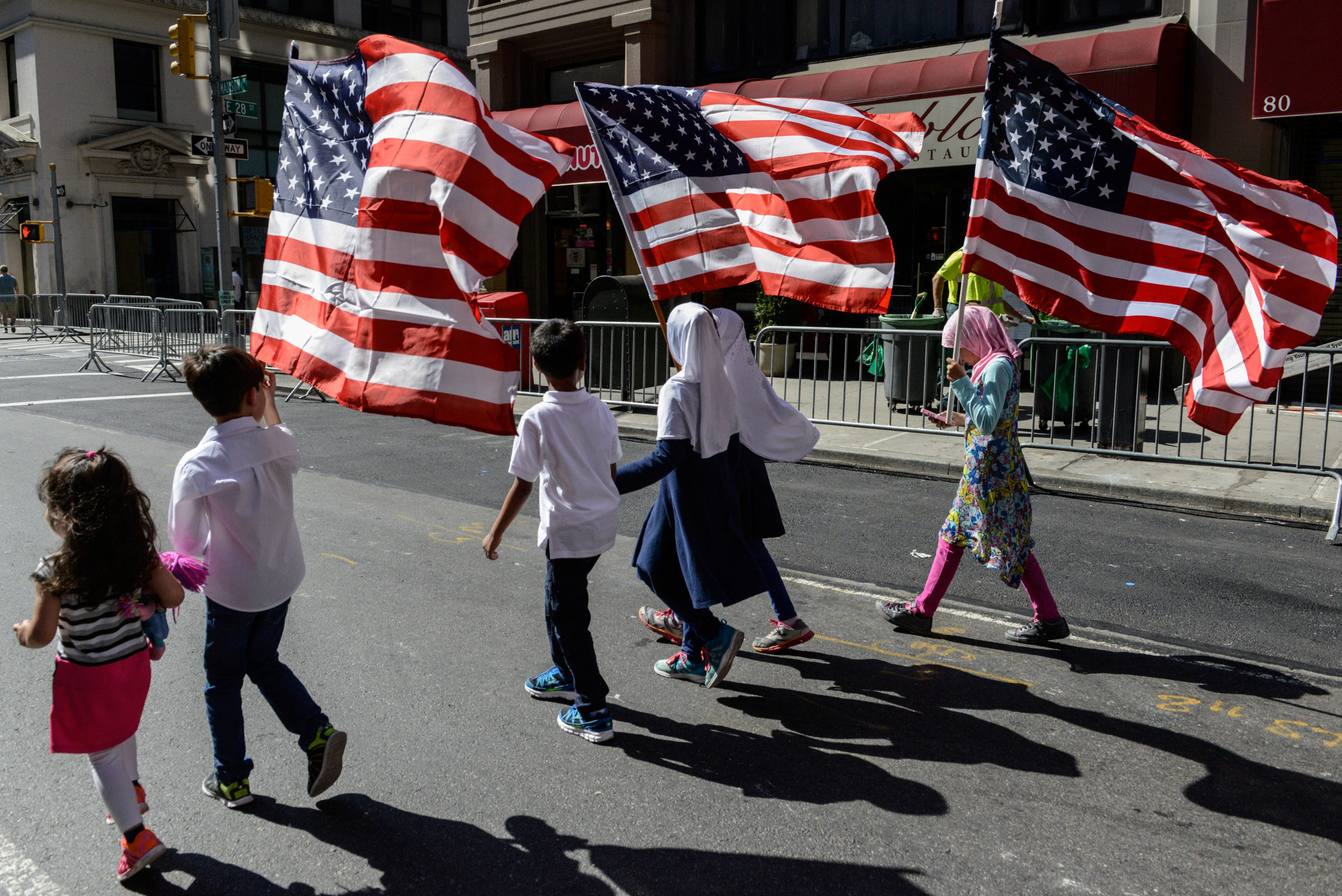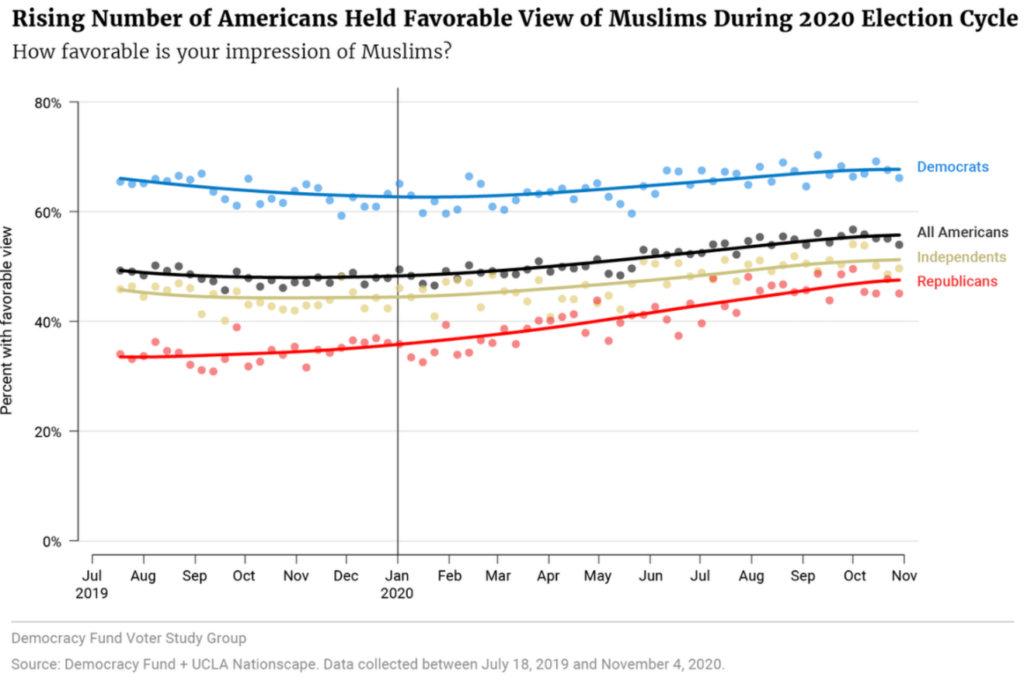Blog May 5, 2021
Did Americans Become More Accepting of Muslims During the Trump Years?

Last month, Voter Study Group (VSG)’s Rob Griffin and Mayesha Quasem offered some intriguing new analysis showing views of Muslims became more positive in the latter Trump years. Positive views of Muslims increased to 56 percent as of the end of 2020, up from 49 percent in mid 2019. What’s more, the authors note that the rise in favorable feelings was brought about “exclusively by shifts among Republicans and Independents.”

The findings are intriguing for a couple of reasons. First, they are unexpected. At a time of heightened racial tensions in the US and growing violence against Asian citizens, it is not clear why there would be a sudden surge in positive feeling towards Muslims.
The other finding that is curious is who is changing their views. Though Republicans are leading the shift in more positive attitudes, most Republicans still believe there is a fundamental incompatibility between Islam and traditional American values. What’s more, immigration remains a top concern among Trump voters and a significant number of Republicans believe that Christianity is under duress.
So, how is this happening? The rapid nature of the change and the fact it is occurring primarily, if not exclusively, among the center-right precludes broad cultural or demographic explanations. We can rule out social integration as well. Having a close personal connection to someone who belongs to a particular religious community can result in more positive feeling for the entire group. And while it is true that more Americans report knowing someone who is Muslim today—nearly half of the public in a recent Pew poll—these social ties are often weak, and the growth of these social connections are largely concentrated among younger and more liberal-leaning groups.
Nazita Lajevardi, an Assistant Professor in political science at Michigan State University and author of Outsiders at Home, believes confidence in Trump’s leadership on the issue of immigration and the perceived Muslim threat likely played a role. Over email Lejvardi suggested that Republicans “perceived less of a Muslim threat and their minds were put at ease because of faith in Trump’s competence as a leader to handle perceived issues related to the group.” Lejevardi also noted that a lack of media attention focused on the issue of terrorism may have made the issue less salient. “Muslims experienced a great deal of interest throughout the [2016] campaign and also into early 2017, and there seems to have been a greater correlation with Google search interest in terror during this period,” she says. “But this declined and the correlation weakened throughout the rest of the [Trump] administration.”
At a time when public attitudes have grown consistently more polarized, the VSG results suggest a refreshing reversal. This is good news. However, it is not clear whether these gains will endure. There are structural reasons we might expect Muslims to enjoy greater acceptance in the US over the long run, but in the short term a dramatic reversal is possible. Research has shown that concerns about terrorism continue to be associated with anti-Muslim sentiment. Further, with Trump no longer in office, anti-Muslim feeling may reemerge on the right as part of concerns about the ongoing cultural and demographic shifts that have defined this political era.








